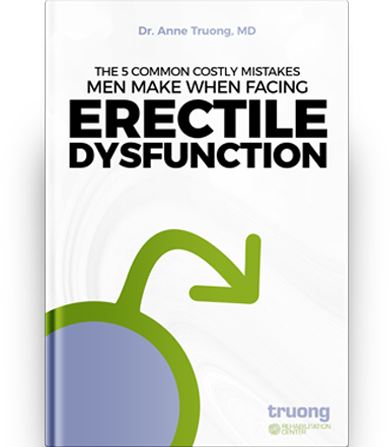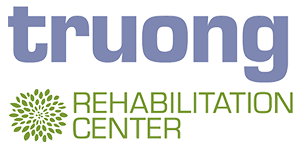Premature ejaculation or premature climax occurs when a man has an orgasm and ejaculates earlier during intercourse than he or his partner would like. Premature ejaculation is the most common sexual problem in men, affecting 30% to 40% of men. Causes include physical problems, chemical imbalances, and emotional/psychological factors. Treatments include learning techniques to delay ejaculation, counseling, and medications.
What is premature ejaculation?
Premature ejaculation is a type of sexual dysfunction that occurs when a man has an orgasm and releases (ejaculates) semen sooner than he or his partner would like. It happens with minimal sexual stimulation and before the person wishes to ejaculates. It often happens before or shortly after penetration during intercourse. It is usually defined as less than one minute after intravaginal penetration. Premature ejaculation can be a frustrating experience for both you and your sexual partner and makes your sex lives less enjoyable. However, the good news is that it’s usually fixable!
How common is premature ejaculation?
Between 30% and 40% of men experience premature ejaculation at some point in their life. According to the American Urological Association, premature ejaculation is the most common type of sexual dysfunction in men. About one in five men between the ages of 18 and 59 report incidences of premature ejaculation.
What time frame medically defines a man’s premature ejaculation time?
Although the definition of premature ejaculation varies, the American Urological Association defines ejaculation as “premature” if it happens before sexual penetration has been achieved, or within about a minute of penetration. The American Psychiatric Association defines three levels of severity (mild, moderate, severe), based on time to ejaculation, with mild being under one minute. If pressed for a time frame, many doctors would define prematurity as ejaculation within a minute of beginning intercourse. Despite professional opinions, your feelings as to what is premature are also considered.
SYMPTOMS AND CAUSES
What causes premature ejaculation?
Physical, chemical, and emotional/psychological factors cause premature ejaculation.
Physical and chemical problems include:
- An underlying cause is erectile dysfunction
- A hormonal problem with oxytocin levels, which has a role in sexual function in men. Other hormone levels that play a role in sexual function include luteinizing hormone (LH), prolactin and thyroid stimulating hormone (TSH)
- Low serotonin or dopamine levels, chemicals in the brain that are involved in sexual desire and excitement.
- A penis that is extra sensitive to stimulation.
Emotional or psychological causes include:
- Performance anxiety. Could be due to the nervousness of being with a new partner, anxiousness of having sex again after a long period of abstinence, lack of confidence, guilt, being overly excited or stimulated or other reasons.
- Stress.
- Relationship problems.
- Depression.
- Sexual abuse
The only symptom of premature ejaculation is the condition itself.
Diagnosis and medical history:
How are the causes of premature ejaculation diagnosed?
Your male sexual health specialist will begin an exam by asking about your sexual experiences. You will likely be asked:
- How long have you had this problem?
- Under what circumstances does it happen?
- How often does it happen?
- Does premature ejaculation happen at every sexual attempt?
- Does it happen with all partners?
- Does premature ejaculation occur when you masturbate?
- Do you have trouble maintaining an erection?
While the questions are personal, it is important that you answer honestly so your sexual health doctor can best diagnose the source of your problem.
Your doctor will also ask about any other medical conditions you may have and any medications including over-the-counter medications, supplements, and herbal products you are taking. You will also be asked about any alcohol and illegal drug use.
Are lab tests needed to make the diagnosis of premature ejaculation?
Lab tests are usually not needed unless your healthcare provider suspects that an underlying health problem is contributing to the problem.
Premature Ejaculation Treatment:
How is premature ejaculation treated?
There are many different treatments options for premature ejaculation depends on the cause. These include behavioral therapy, counseling, and medications. Most causes of premature ejaculation are usually treated first with behavior therapy and/or counseling to help with emotional concerns, performance anxiety or stressors that may be contributing. Often more than one treatment approach may be tried at the same time. Check out sex therapist at https://www.aasect.org/
How to Stop Premature Ejaculation:
Behavioral therapy and exercise for premature ejaculation.
- Behavioral therapy involves trying different methods to delay your orgasm. Its goal is to teach you how to control your body and your feelings. Methods include:
- Start and stop: With this technique, you or your partner stimulates your penis close to the point of orgasm then stops the stimulation for about 30 seconds until you regain control of your response. Repeat this “start and stop” approach three or four times before allowing yourself to orgasm. Continue practicing this method until you have gained good control.
- Squeeze method: With this technique, you or your partner stimulates your penis close to the point of orgasm then gently squeezes the head of your penis for about 30 seconds so that you begin to lose your erection. Repeat this technique a few times before allowing yourself to orgasm. Continue practicing this technique until you have gained control in delaying your orgasm.
- Distracted thinking: With this technique, the idea is to focus your attention on ordinary nonsexual things while you’re being sexually stimulated. Naming sequences are a good way to focus your attention. For example, visualize naming all the businesses you pass on your drive to the gym, naming all the players on your favorite sports team or naming all the products on the aisles of your favorite store.
- Kegels exercises: can strengthen the pelvic floor muscles, which support the bladder and bowel and affect sexual function. To identify your pelvic floor muscles, stop urination in midstream or tighten the muscles that keep you from passing gas. These maneuvers use your pelvic floor muscles. Once you’ve identified your pelvic floor muscles, you can do the exercises in any position, although you might find it easiest to do them lying down at first. You can go to www.men1.club for more information.
- Practice stopping your urine midstream at least twice with every urination, this method strengthens the same muscles involved in ejaculation. When you feel you have to ejaculate, start to contract these muscles as if you are stopping your urine stream. This will help delay ejaculation. Take a deep breath to inhibit the ejaculatory reflex.
- Know that have an orgasm without ejaculation. This is called dry orgasm. Dry orgasm usually isn’t harmful.
Counseling
If the cause of your premature ejaculation is psychological, emotional, or due to relationship issues – due to performance anxiety, depression, stress, guilt, or a troubled relationship – seek the help of a psychologist, psychiatrist, couples therapist or sex therapist.
Best premature ejaculation pills:
Several types of oral medications may be tried. Antidepressants, especially selective serotonin reuptake inhibitors like citalopram (Celexa®), escitalopram (Lexapro®), fluoxetine (Prozac®), paroxetine (Paxil®) and sertraline (Zoloft®) or the tricyclic antidepressant clomipramine (Anafranil®), can help delay premature ejaculation. This is an “off-label” use (not approved by the Food and Drug Administration for this use). However, these medications may contribute to erectile dysfunction as well.
Anesthetic (numbing) creams and sprays applied to the head and shaft of the penis are another medication option to delay ejaculation. The anesthetic cream or spray is applied to the penis, absorbed for 10 to 30 minutes or until you feel less sensitivity in your penis. It’s important to wash your penis before sex to prevent numbness to your partner’s vagina or loss of your erection.
Erectile dysfunction medications PDE5 inhibitors, which include sildenafil (Viagra®), tadalafil (Cialis®), vardenafil (Levitra®) and Avanafil (Stendra®), have also been used to treat PE, particularly in men with underlying erectile dysfunction.
Hyaluronic acid for premature ejaculation:
Penile hypersensitivity is thought to be an etiologic factor of lifelong PE. The role of glans penis augmentation using injectable hyaluronic acid (HA) for the treatment of PE had shown improvement in 5 studies. The creation of a barrier at the level of the glans, by the bulking agent blocking accessibility and inhibiting the tactile stimuli to reach the dorsal nerve of the penis (branch of the pudendal nerve) receptors, is the theory behind the effectiveness of HA in PE. These studies showed that HA injection could significantly increase Intravaginal ejaculation latency time (IELT), defined as the time between the start of vaginal intromission and the start of intravaginal ejaculation (2.43- to 4.46-fold), and this increase could persist for the long term (up to 5 years). No serious adverse reactions were reported besides transient discoloration and swelling of the glans that recovered to normal within 2 weeks.
Are lab tests needed to make the diagnosis of premature ejaculation?
Lab tests are usually not needed unless your healthcare provider suspects that an underlying health problem is contributing to the problem.
PREVENTION
Can I prevent premature ejaculation?
Yes, you likely can! By following the techniques and treatment described in this article to delay ejaculation, taking any prescribed medications if appropriate, and tolerated and seeking counseling if needed, premature ejaculation can become a problem of your past.
OUTLOOK / PROGNOSIS
What outcome can I expect if I have premature ejaculation?
There are several treatment methods that can help prevent premature ejaculation. By involving your partner and seeing the appropriate sexual health doctor for initial assessment plus other health care professionals (psychologists, psychiatrists, counselors) as needed for underlying contributing problems, you will likely be able to control your ejaculation and enjoy your sex life once again.
Can wearing a condom help with premature ejaculation?
Yes. Wearing a condom can decrease sensitivity to your penis and help delay ejaculation.
Is premature ejaculation harmful or a sign of a medical problem?
Premature ejaculation itself is not harmful but other health problems may contribute to the development of premature ejaculation. These health problems include:
- Erectile dysfunction (man can’t maintain a firm erection for intercourse).
- Chronic pelvic pain syndrome (long-term pain and cramping in the pelvic area plus long-term urinary tract symptoms and sexual dysfunction).
- Thyroid disorders.
- Recreational drug use.
What’s the difference between erectile dysfunction and premature ejaculation?
If you have erectile dysfunction, you can’t attain or maintain your erection. If you have premature ejaculation, you have an erection but you reach orgasm and ejaculate earlier than you or your partner would have liked.
However, erectile dysfunction can actually lead to the development of premature ejaculation. This happens when a man knows his ability to sustain an erection is poor, so he develops the habit of ejaculating soon after erection before he loses his erection.
Because of this connection between these two conditions, your doctor will want to figure out if you have erectile dysfunction and, if so, treat that first.
Can drinking alcohol help delay ejaculation?
While it’s true that drinking alcohol can delay orgasm, but it can impair ejaculation and erection. It’s not a treatment for premature ejaculation.
Resources:
Alahwany A, Ragab MW, Zaghloul A, Abdallah H, Mostafa T. Hyaluronic acid injection in glans penis for treatment of premature ejaculation: a randomized controlled cross-over study. Int J Impot Res. 2019 Sep;31(5):348-355. doi: 10.1038/s41443-018-0104-9. Epub 2019 Jan 4. PMID: 30610210.
Kosseifi F, Chebbi A, Raad N, Ndayra A, El Samad R, Achkar K, Durand X, Noujeim A. Glans penis augmentation using hyaluronic acid for the treatment of premature ejaculation: a narrative review. Transl Androl Urol. 2020 Dec;9(6):2814-2820. doi: 10.21037/tau-20-1026. PMID: 33457252; PMCID: PMC7807328.
Jeong HG, Ahn ST, Kim JW, Seo KK, Lee DS, Uh HS, Kim JJ, Moon DG. Practice Patterns Among Korean Urologists for Glans Penis Augmentation Using Hyaluronic Acid Filler in the Management of Premature Ejaculation. Sex Med. 2018 Dec;6(4):297-301. doi: 10.1016/j.esxm.2018.06.005. Epub 2018 Aug 2. PMID: 30078733; PMCID: PMC6302150.
Moon du G, Kwak TI, Kim JJ. Glans Penis Augmentation Using Hyaluronic Acid Gel as an Injectable Filler. World J Mens Health. 2015 Aug;33(2):50-61. doi: 10.5534/wjmh.2015.33.2.50. Epub 2015 Aug 19. PMID: 26331121; PMCID: PMC4550597.










